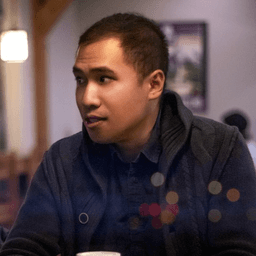For decades, mental health has carried stigma across professional sports. Athletes were expected to perform without showing weakness. Admitting to anxiety or depression was seen as failure. This silence fueled suffering in locker rooms and homes.
Kevin Love was among the first wave of NBA players to speak openly about mental health, and in 2016, he became an NBA champion with Cleveland. Fans admire his skills, but grew to love his work as a mental health advocate for athletes. Love now represents courage both on and off court.
His openness about panic attacks changed the sports narrative. Athletes began sharing their struggles after his confession. The conversation spread into schools, homes, and workplaces. Love proved that vulnerability can create cultural transformation.
The Turning Point: Panic Attack Sparks Conversation
Kevin Love suffered a panic attack on November 5, 2017. It happened during a Cavaliers game against Atlanta. He collapsed on court while overwhelmed with sudden fear. The moment shocked teammates and raised widespread concern. That experience became his personal turning point.
Months later, Love explained his experience in writing. He published “Everyone Is Going Through Something” in 2018. The essay appeared on The Players’ Tribune platform. It quickly became a powerful cultural touchstone. “It came out of nowhere,” Love wrote. “I’d never had one before. I didn’t even know if they were real. But it was real — as real as a broken hand or a sprained ankle. Since that day, almost everything about the way I think about my mental health has changed.”
Love insists that everyone struggles with hidden emotional battles. That sentence encouraged millions to reflect on themselves. It normalized conversation across sports and society.
Struggles Behind the Scenes: Anxiety, Depression, Masculinity
Love admitted anxiety had been present since childhood. Success in basketball never erased his inner fear. He carried this hidden burden into professional life, while his achievements masked years of silent struggle.
Sports demanded toughness, silence, and resilience without complaint. As a man, vulnerability was discouraged in every way; Love felt pressure to fit the masculine stereotype.
Therapy introduced Love to healthier coping strategies. While Talking openly created space for healing and growth, he learned vulnerability was a form of strength. Therapy became a pillar of his transformation.
The Birth of the Kevin Love Fund

In 2018, Love launched the Kevin Love Fund. He wanted a legacy beyond championships and trophies. The foundation answered a growing mental health need. It promised to support both body and mind.
The mission aims to inspire people toward healthier living. It highlights both physical and emotional wellness. Awareness, education, and action guide each initiative consistently. The Fund develops resources to empower healthier everyday lives.
Love wanted children to learn emotional literacy early, and empowering the next generation drives the Fund’s work. This vision anchors every program and partnership.
What the Kevin Love Fund Does Today
The Fund creates educational resources for classrooms worldwide. These lessons teach children emotional awareness and resilience. They emphasize building skills instead of basic awareness. Schools now integrate these into daily teachings.
The Fund collaborates with UCLA to expand research and partners with Bring Change to Mind nationally. These organizations strengthen the Kevin Love Fund’s reach and expertise.
One goal of the organization is to train educators to recognize signs early. It provides counselors and therapists for schools in need. Coaches also receive training to support young athletes. Communities gain practical resources for ongoing support.
The Fund also supported “The Hero Within” creative campaign. It used art and storytelling to reach young audiences and established the Kevin Love Fund Centennial Chair in UCLA’s psychology department. Each initiative strengthens its mission in visible ways.
Shifting the Culture: Influence Across Sports and Society
Love’s honesty encouraged teammates to share openly. Silence was the norm, but conversation started to feel possible. Athletes of the new generation now discuss therapy, sometimes as freely as training. That cultural shift reshaped professional locker rooms.
Kevin Love’s essay on depression inspired fellow athletes. Teammate Channing Frye later shared his own struggles, and this advocacy paved paths for stars like Simone Biles to later open up. Love’s influence extended far beyond basketball and the NBA.
Following Love’s advocacy, the NBA expanded mental wellness programs significantly. Most teams now have licensed mental health professionals. The league launched league-wide player wellness initiatives.
Why This Matters to Athletes, Coaches, Parents
Young athletes face constant pressures from competition and school. They also experience stress from peers and the expectations they feel their loved ones of coaches have for them. Love’s openness gave them strength to admit their struggles, and taught them that it’s safe to seek help. Support systems must address both wins and emotions. Coaches should learn how to help train, and parents can model vulnerability and honest conversations.
From Vulnerability to Victory
Kevin Love redefined what courage means today, not just in the NBA but in all of sports. Courage now includes the courage to be open, rather than the courage to stay silent and hold onto your struggles alone. His example reaches beyond trophies or medals; it impacts everyday people worldwide.
Love urges society to keep dialogue alive. He wants openness in schools, families, and teams, as ongoing dialogue ensures progress will not fade.
The Kevin Love Fund continues expanding across communities, and offers resources and education for all ages. You can support or learn directly from its website. Together, we can create healthier, more open futures for all our athletes.



